फ (Pha) के शब्द (Words with फ) Barakhadi
- फ + अ = फ (Pha)
- Example: फूल (Phool – Flower)
- फ + आ = फा (Phaa)
- Example: फाग (Phag – A term used in spring, also refers to the festival of colors)
- फ + इ = फि (Phi)
- Example: फिरकी (Phirki – Spinning toy)
- फ + ई = फी (Phee)
- Example: फीका (Pheeka – Tasteless)
- फ + उ = फु (Phu)
- Example: फुलाना (Phulana – To inflate)
- फ + ऊ = फू (Phu)
- Example: फूंक (Phunk – To blow)
- फ + ऋ = फृ (Phri)
- Example: फृक्त (Phriakt – A rare word referring to some species of plants)
- फ + ए = फे (Phe)
- Example: फेम (Phem – Fame)
- फ + ऐ = फै (Phai)
- Example: फैशन (Phashion – Fashion)
- फ + ओ = फो (Pho)
- Example: फोड़ा (Phoda – A boil or pimple)
- फ + औ = फौ (Phau)
- Example: फौज (Phauj – Army)
- फ + अं = फं (Phan)
- Example: फंदा (Phanda – A noose or a loop)
- फ + अः = फः (Pah)
- Example: फः (Not commonly used in words)
Additional Words and Examples
- फक्कड़ (Phakkad – One who is carefree)
- फरिश्ता (Farista – Angel)
- फिटकरी (Fitkari – Alum)
- फ्लैट (Flat – Apartment)
- फर्क (Phark – Difference)
ब (Ba) Barakhadi using the Barakhadi system, paired with each vowel:
- ब (Ba) + अ = ब (Ba)
- ब (Ba) + आ = बा (Baa)
- ब (Ba) + इ = बि (Bi)
- ब (Ba) + ई = बी (Bee)
- ब (Ba) + उ = बु (Bu)
- ब (Ba) + ऊ = बू (Boo)
- ब (Ba) + ऋ = बृ (Br)
- ब (Ba) + ए = बे (Be)
- ब (Ba) + ऐ = बै (Bai)
- ब (Ba) + ओ = बो (Bo)
- ब (Ba) + औ = बो (Bau)
- ब (Ba) + अं = बं (Ban)
- ब (Ba) + अः = बः (Bah)
Examples of Words:
- ब (Ba) – बाग (Bag)
- बा (Baa) – बात (Baat)
- बि (Bi) – बिन (Bin)
- बी (Bee) – बीज (Beej)
- बु (Bu) – बुरे (Bure)
- बू (Boo) – बूढ़ा (Boodha)
- बृ (Br) – बृक्ष (Briksh)
- बे (Be) – बेग (Beg)
- बै (Bai) – बैल (Bail)
- बो (Bo) – बोतल (Botal)
- बौ (Bau) – बौआ (Baua)
- बं (Ban) – बंसी (Bansi)
- बः (Bah) – बः (Used in specific contexts)
भ (Bha) Barakhadi in combination with various vowels in Hindi, following the Barakhadi table:
Barakhadi Words with भ (Bha)
- भ + अ = भ (Bha)
- Meaning: To express or indicate (like “to show”).
- भ + आ = भा (Bhaa)
- Meaning: Part of the word “भावना” (Bhavna) meaning emotion or feeling.
- भ + इ = भी (Bhi)
- Meaning: Also or too.
- भ + ई = भी (Bhee)
- Meaning: Another form, not commonly used.
- भ + उ = भू (Bhoo)
- Meaning: Earth or land.
- भ + ऊ = भू (Bhoo)
- Meaning: Earth (same as above).
- भ + ऋ = भृ (Bhr)
- Meaning: Part of the word “भृगु” (Bhrigu), a sage in Hindu mythology.
- भ + ए = भे (Bhe)
- Meaning: Part of the word “भेड़” (Bhed), meaning sheep.
- भ + ऐ = भै (Bhai)
- Meaning: Fear or dread (not commonly used as a standalone).
- भ + ओ = भो (Bho)
- Meaning: Part of the word “भोला” (Bhola), meaning innocent or naïve.
- भ + औ = भौ (Bhau)
- Meaning: Part of the word “भौतिक” (Bhautik), meaning physical.
- भ + अं = भं (Bham)
- Meaning: A prefix in some words, often denotes a sense of mystery.
- भ + अः = भः (Bhah)
- Meaning: Rarely used, can denote sound or expression in some contexts.
Example Words using भ (Bha) Barakhadi
- भाई (Bhai) – Brother.
- भूत (Bhoot) – Ghost.
- भावना (Bhavna) – Emotion.
- भोजन (Bhojan) – Meal or food.
- भाषा (Bhasha) – Language.
- भृगु (Bhrigu) – A sage.
- भयंकर (Bhayanakar) – Terrible or frightening.
- भामाशाह (Bhamashah) – A historical figure known for his philanthropy.
म (Ma) Barakhadi Transformations
- म + अ = म (Ma)
- म + आ = मा (Maa)
- म + इ = मि (Mi)
- म + ई = मी (Mee)
- म + उ = मु (Mu)
- म + ऊ = मू (Moo)
- म + ऋ = मृ (Mri)
- म + ए = मे (Me)
- म + ऐ = मै (Mai)
- म + ओ = मो (Mo)
- म + औ = मौ (Mau)
- म + अं = मं (Man)
- म + अः = मः (Mah)
Example Words
- मा (Maa) – Mother
- मि (Mi) – Short for ‘मिलना’ (Milna – to meet)
- मी (Mee) – Me (informal)
- मु (Mu) – Can refer to a short form of ‘मुग्ध’ (Mugdh – enchanted)
- मू (Moo) – A sound, or can refer to a cow in informal contexts.
- मे (Me) – In or at
- मै (Mai) – I
- मो (Mo) – A term sometimes used for ‘मोर’ (Mor – peacock).
- मौ (Mau) – A sound or reference in some dialects.
Words with य (Ya) Barakhadi:
- य + अ = य (Ya)
- य + आ = या (Yaa)
- य + इ = यि (Yi)
- य + ई = यी (Yee)
- य + उ = यु (Yu)
- य + ऊ = यू (Yoo)
- य + ऋ = यृ (Yri)
- य + ए = ये (Ye)
- य + ऐ = यै (Yai)
- य + ओ = यो (Yo)
- य + औ = यौ (Yau)
- य + अं = यं (Yan)
- य + अः = यः (Yah)
Examples of Words:
- य (Ya): यार (Yaar – friend)
- या (Yaa): या (yaa – or)
- यि (Yi): यिन (Yin – to win)
- यी (Yee):
- यु (Yu): युति (Yuti – union)
- यू (Yoo):
- यृ (Yri):
- ये (Ye): ये (ye – these)
- यै (Yai):
- यो (Yo): योद्धा (Yoddha – warrior)
- यौ (Yau):
- यं (Yan):
- यः (Yah):
र (Ra) Barakhadi Syllables
- र + अ = र (Ra)
- Example: रसोई (Rasoi – kitchen)
- र + आ = रा (Raa)
- Example: राजा (Raja – king)
- र + इ = रि (Ri)
- Example: रिश्ता (Rishta – relationship)
- र + ई = री (Ree)
- Example: रीति (Reeti – tradition)
- र + उ = रु (Ru)
- Example: रुख (Rukh – direction)
- र + ऊ = रू (Roo)
- Example: रूम (Room – room)
- र + ऋ = ऋ (Rri)
- Example: ऋतु (Rritu – season)
- र + ए = रे (Re)
- Example: रेगिस्तान (Registan – desert)
- र + ऐ = रै (Rai)
- Example: रैल (Rail – train)
- र + ओ = रो (Ro)
- Example: रोशनी (Roshni – light)
- र + औ = रौ (Rau)
- Example: रौंद (Raund – to crush)
- र + अं = रं (Ran)
- Example: रंग (Rang – color)
- र + अः = रः (Rah)
- Example: रः (Used in some compound words)
ल (La) के शब्द Barakhadi (Words)
- ल + अ = ल (La)
- लम्बा (Lamba) – long
- लड्डू (Laddu) – a type of sweet
- लहर (Lahar) – wave
- ल + आ = ला (Laa)
- लाका (Laaka) – a term used in some regional dialects
- लामा (Lamaa) – lama (Buddhist monk)
- ल + इ = लि (Li)
- लिबास (Libas) – dress
- लिपि (Lipi) – script
- ल + ई = ली (Lee)
- लीला (Leela) – play or drama
- लीडर (Leader) – leader
- ल + उ = लु (Lu)
- लुटेर (Lutera) – robber
- लुगाई (Lugai) – wife (informal)
- ल + ऊ = लू (Loo)
- लूट (Loot) – plunder
- लूटना (Lootna) – to loot
- ल + ऋ = लृ (Lri)
- लृक (Lrik) – a rarely used term in literature
- ल + ए = ले (Le)
- लेना (Lena) – to take
- लेक (Lek) – lake
- ल + ऐ = लै (Lai)
- लैला (Laila) – a popular name
- ल + ओ = लो (Lo)
- लोग (Log) – people
- लोका (Loka) – world
- ल + औ = लौ (Lau)
- लौटा (Lauta) – return
- लौह (Lauh) – iron
- ल + अं = लं (Lam)
- लंका (Lanka) – Lanka (mythological)
- लंठ (Lanth) – a foolish person
- ल + अः = लः (Lah)
- This combination is less commonly used in Hindi but can occur in poetic contexts.
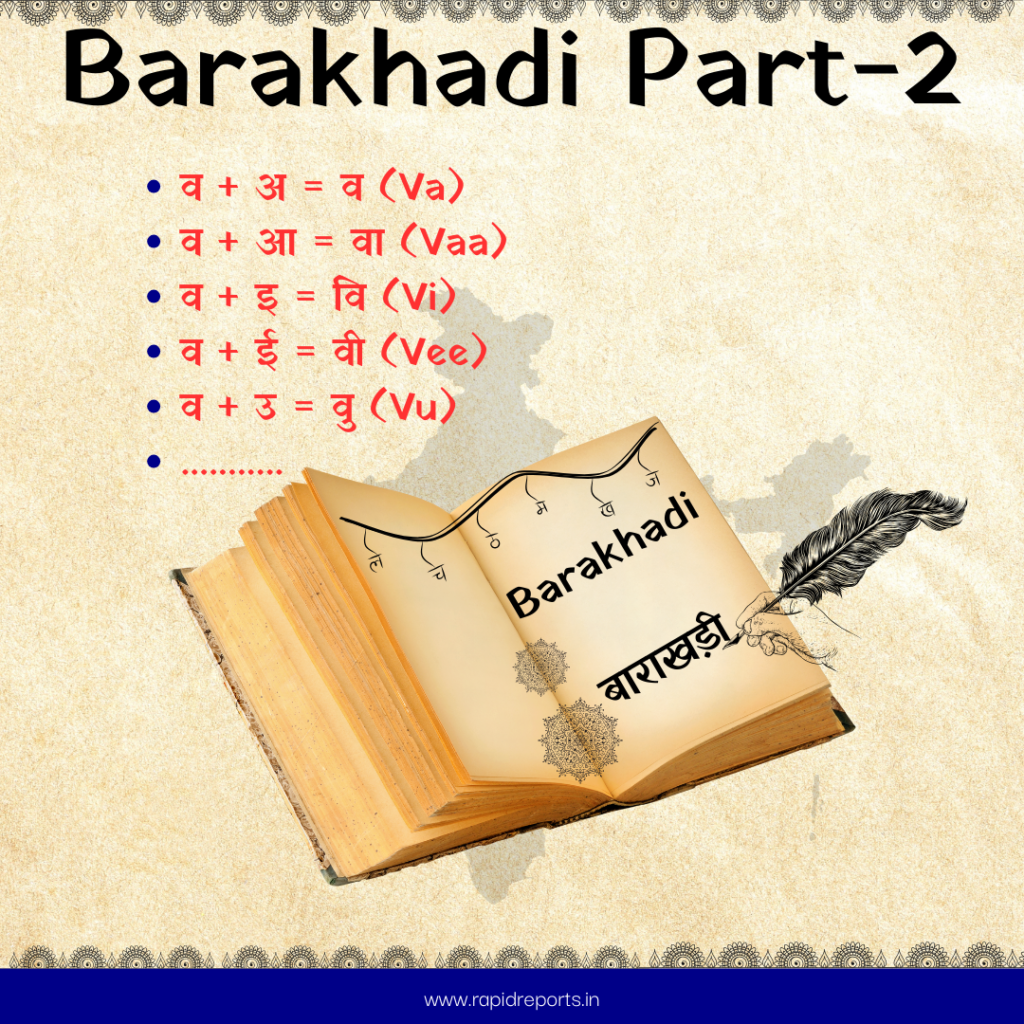
व (Va) Barakhadi Table
- व + अ = व (Va)
- व + आ = वा (Vaa)
- व + इ = वि (Vi)
- व + ई = वी (Vee)
- व + उ = वु (Vu)
- व + ऊ = वू (Voo)
- व + ऋ = वृ (Vri)
- व + ए = वे (Ve)
- व + ऐ = वै (Vai)
- व + ओ = वो (Vo)
- व + औ = वौ (Vau)
- व + अं = वं (Van)
- व + अः = वः (Vah)
Summary of व (Va)
- व (Va): Represents the sound associated with the letter.
- वा (Vaa): A longer sound, often found in various Hindi words.
- वि (Vi): Used in words that include a short “i” sound.
- वी (Vee): Represents a prolonged “ee” sound, common in many names and terms.
- वु (Vu): A short “u” sound, often appearing in verbs.
- वू (Voo): Represents a longer “oo” sound.
- वृ (Vri): A unique combination, usually indicating a certain rhythm in words.
- वे (Ve): Often used in words denoting existence or place.
- वै (Vai): A diphthong that adds an elegant touch to many words.
- वो (Vo): Commonly used for emphasis or reference.
- वौ (Vau): Less common but still appears in certain contexts.
- वं (Van): Represents nasal sounds, crucial for word endings.
- वह (Vah): Often used to denote respect or exclamation.
Words with श (Sha) Barakhadi:
- श + अ = श (Sha)
- श + आ = शा (Sha)
- श + इ = शि (Shi)
- श + ई = शी (Shee)
- श + उ = शु (Shu)
- श + ऊ = शू (Shu)
- श + ऋ = श्रि (Shri)
- श + ए = शे (She)
- श + ऐ = शै (Shai)
- श + ओ = शो (Sho)
- श + औ = शौ (Shau)
- श + अं = शं (Shan)
- श + अः = शः (Shah)
Sample Words for Each Combination:
- श (Sha) – As in शक्ति (Shakti – power)
- शा (Sha) – As in शाला (Shala – school)
- शि (Shi) – As in शिव (Shiv – Lord Shiva)
- शी (Shee) – As in शीर्ष (Sheersh – head)
- शु (Shu) – As in शुभ (Shubh – auspicious)
- शू (Shu) – As in शूर्पणखा (Shoorpankha – a character from mythology)
- श्रि (Shri) – As in श्री (Shri – respect)
- शे (She) – As in शेयर (Sheyar – share)
- शै (Shai) – As in शैशव (Shaishav – childhood)
- शो (Sho) – As in शोक (Shok – sorrow)
- शौ (Shau) – As in शौक (Shauk – hobby)
- शं (Shan) – As in शंकर (Shankar – another name for Lord Shiva)
- शः (Shah) – Used in expressions or names like शः (in some contexts).
ष (Sha) Barakhadi + Vowels
- ष + अ = ष (Sha)
- ष + आ = षा (Sha)
- ष + इ = षि (Shi)
- ष + ई = शी (Shee)
- ष + उ = षु (Shu)
- ष + ऊ = षू (Shu)
- ष + ऋ = षृ (Shri)
- ष + ए = षे (She)
- ष + ऐ = षै (Shai)
- ष + ओ = षो (Sho)
- ष + औ = षौ (Shau)
- ष + अं = षं (Shan)
- ष + अः = षः (Shah)
Barakhadi for स (Sa):
- स + अ = स (Sa)
- Example: सागर (Sagar – sea)
- स + आ = सा (Saa)
- Example: साड़ी (Saari – saree)
- स + इ = सि (Si)
- Example: सिला (Sila – stitched)
- स + ई = सी (See)
- Example: सीता (Sita – a name)
- स + उ = सु (Su)
- Example: सुगंध (Sugandh – fragrance)
- स + ऊ = सू (Soo)
- Example: सूती (Sooti – cotton)
- स + ऋ = सृ (Sri)
- Example: सृजन (Srijan – creation)
- स + ए = से (Se)
- Example: सेब (Seb – apple)
- स + ऐ = सै (Sai)
- Example: सैल (Sail – a type of flow)
- स + ओ = सो (So)
- Example: सोना (Sona – gold)
- स + औ = सौं (Saun)
- Example: सौंफ (Saunf – fennel)
- स + अं = सं (San)
- Example: संग (Sang – together)
- स + अः = सः (Sah)
- Example: सः (Sah – he, used in literature)
ह (Ha)Barakhadi with all the vowels in the Barakhadi table:
- ह + अ = ह (Ha)
- ह + आ = हा (Haa)
- ह + इ = हि (Hi)
- ह + ई = ही (Hee)
- ह + उ = हु (Hu)
- ह + ऊ = हू (Hoo)
- ह + ऋ = हृ (Hri)
- ह + ए = हे (He)
- ह + ऐ = है (Hai)
- ह + ओ = हो (Ho)
- ह + औ = हौ (Hau)
- ह + अं = हं (Ham)
- ह + अः = हः (Hah)
Examples of Words:
- ह (Ha) – He
- हा (Haa) – An expression of laughter
- हि (Hi) – In (used in certain phrases)
- ही (Hee) – Only, just
- हु (Hu) – A sound or expression in some contexts
- हू (Hoo) – Often used in expressions or sounds
- हृ (Hri) – Heart (rarely used in everyday language)
- हे (He) – Hey (an informal greeting)
- है (Hai) – Is
- हो (Ho) – Be
- हौ (Hau) – A sound of affirmation
- हं (Ham) – We (in certain contexts)
- हः (Hah) – An expression of surprise or emphasis
Barakhadi Syllables for क्ष (Ksha)
- क्ष + अ = क्ष (Ksha)
- क्ष + आ = क्षा (Kshaa)
- क्ष + इ = क्षि (Kshi)
- क्ष + ई = क्षी (Kshii)
- क्ष + उ = क्षु (Kshu)
- क्ष + ऊ = क्षू (Kshoo)
- क्ष + ऋ = क्षृ (Kshri)
- क्ष + ए = क्षे (Kshe)
- क्ष + ऐ = क्षै (Kshai)
- क्ष + ओ = क्षो (Ksho)
- क्ष + औ = क्षौ (Kshau)
- क्ष + अं = क्षं (Ksham)
- क्ष + अः = क्षः (Kshaḥ)
Example Words with क्ष (Ksha)
Here are some example words that incorporate the क्ष sound:
- क्षेत्र (Kshetra) – Field, area
- क्षय (Kshaya) – Deterioration, decay
- क्षमा (Kshama) – Forgiveness
- क्षम्य (Kshamya) – To be forgiven
- क्षिप्त (Kshipta) – Thrown, cast
त्र (Tra) Barakhadi Words
- त्र + अ = त्र (Tra)
- त्र + आ = त्रा (Traa)
- त्र + इ = त्रि (Tri)
- त्र + ई = त्रि (Tree)
- त्र + उ = त्रु (Tru)
- त्र + ऊ = त्रु (Tru)
- त्र + ऋ = त्रृ (Trri)
- त्र + ए = त्रे (Tre)
- त्र + ऐ = त्रै (Trai)
- त्र + ओ = त्रो (Tro)
- त्र + औ = त्रौ (Trau)
- त्र + अं = त्रं (Tram)
- त्र + अः = त्रः (Trah)
Example Words
Here are some common words using त्र (Tra):
- त्रिकोण (Trikone) – Triangle
- त्रैतीय (Traitiya) – Third
- त्रुटि (Truti) – Error
- त्रास (Traas) – Terror
- त्रिवेणी (Triveni) – Confluence of three rivers
ज्ञ (Gya) Barakhadi Transformations
- ज्ञ + अ = ज्ञ (Gya)
- ज्ञ + आ = ज्ञा (Gyaa)
- ज्ञ + इ = ज्ञि (Gyi)
- ज्ञ + ई = ज्ञी (Gyee)
- ज्ञ + उ = ज्ञु (Gyu)
- ज्ञ + ऊ = ज्ञू (Gyoo)
- ज्ञ + ऋ = ज्ञृ (Gry)
- ज्ञ + ए = ज्ञे (Gye)
- ज्ञ + ऐ = ज्ञै (Gyai)
- ज्ञ + ओ = ज्ञो (Gyo)
- ज्ञ + औ = ज्ञौ (Gyao)
- ज्ञ + अं = ज्ञं (Gyan)
- ज्ञ + अः = ज्ञः (Gyah)
Summary of Knowledge
- The consonant ज्ञ (Gya) represents a complex sound, commonly used in words related to knowledge, learning, and wisdom.
- It is essential to practice these transformations to master the pronunciation and understanding of Hindi syllables involving this consonant.
अभ्यास करने के लिए वर्कशीट
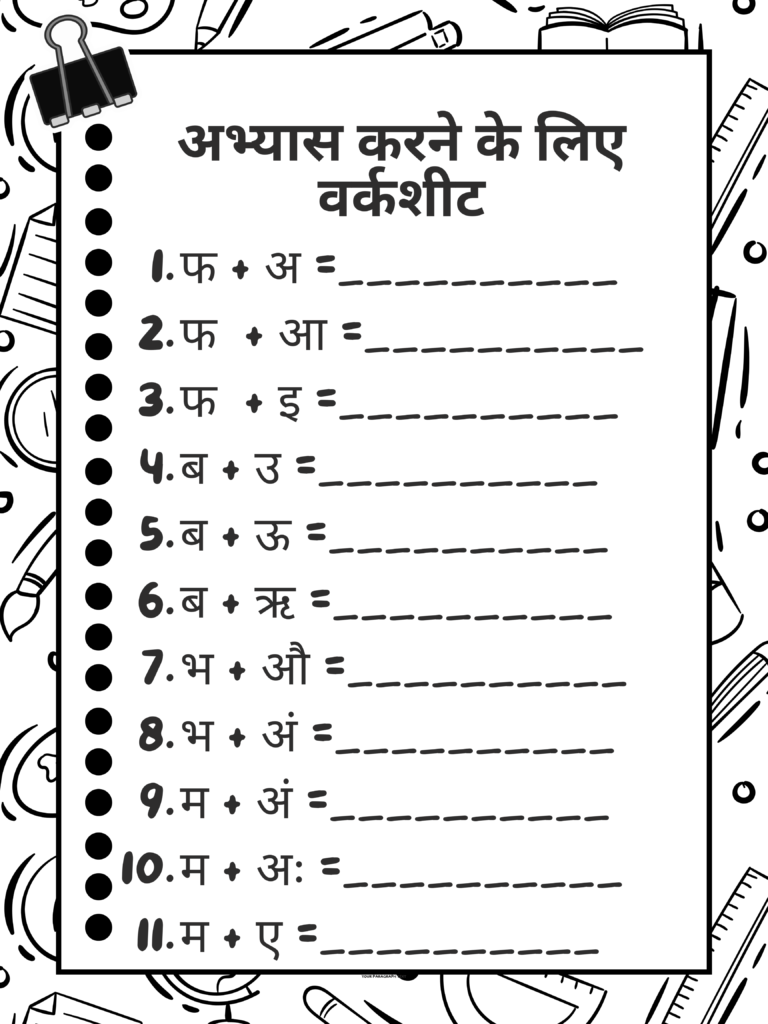
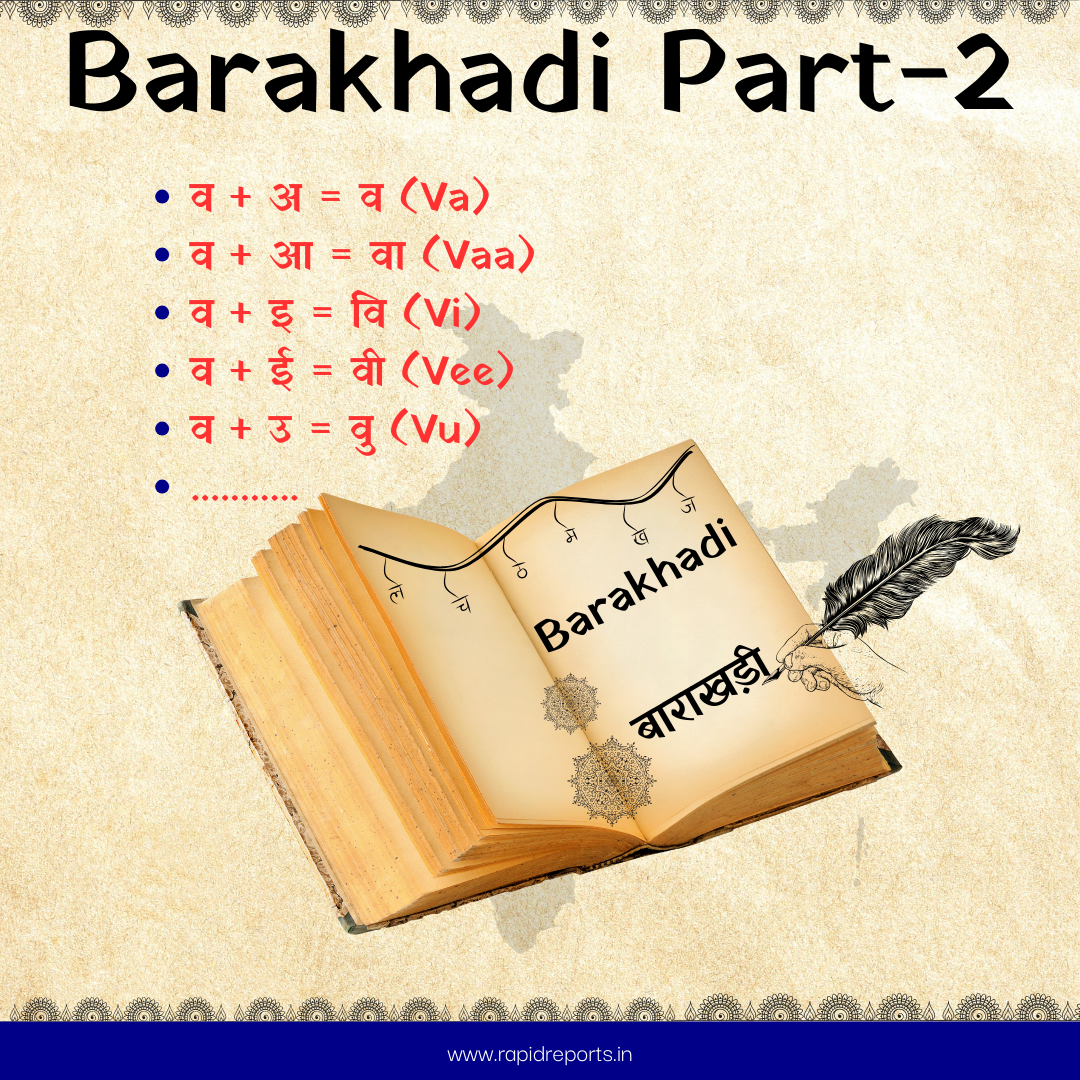

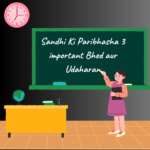

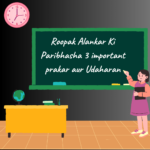

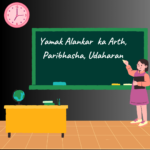

Северная столица является крупным культурным центром России.
Город расположен у дельты Невы и известен своей историей.
Архитектура Петербурга сочетает исторические здания и новые архитектурные решения.
Петербург славится театрами и богатой культурной жизнью.
Исторический центр создают особую атмосферу.
Туристы приезжают сюда в разные сезоны, чтобы насладиться красотой.
Город является значимой деловой площадкой.
В итоге, Санкт-Петербург считается особенным местом.
https://vocal.media/authors/ivan-popov-xw4q02la